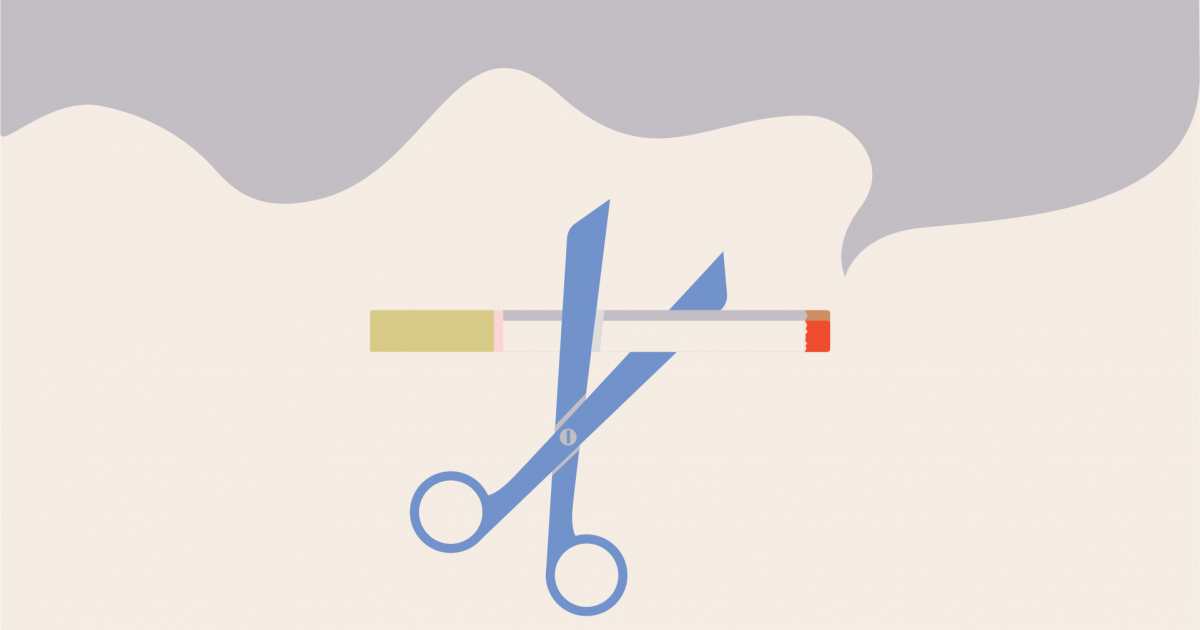Quitting Early Is Best, But It's Never Too Late
- A new study analyzing over 400,000 Americans finds that smokers who kick their habit by 45 cut their excess lung cancer risk by 87%, and smokers who quit by 35 effectively erase their excess risk.
- At all ages, smokers who give up tobacco meaningfully reduce their risk of dying from cancer. Even people who quit smoking after they are diagnosed with cancer benefit.
- Support networks, exercise, relaxation techniques, nicotine replacement therapy, and counseling can all be important tools for people who want to quit smoking.
But a new study published in JAMA Oncology underscores just how impactful quitting can be. Analyzing over 410,000 Americans from 1997 to 2014, researchers found that smokers who quit their habit by age 45 canceled out 87% of excess lung cancer risk. Smokers who quit by 35 effectively eliminated their excess risk.
Read MoreStill, the main idea driven home by this research is that smokers who are concerned about their cancer risk should never give up on trying to quit. You will always benefit if you can put the tobacco down.
Advice for Quitting
Dr. Andrea Tufano-Sugarman of NYU Langone Health often counsels cancer patients who are trying to quit smoking. She says, "We know that there is a causal relationship between smoking and both incidents of cancer, and the chance of dying from cancer. There are very few things in science that have a cause and effect relationship, but this is one of them, which is very powerful."
When Dr. Tufano-Sugarman works with people with cancer, counseling is often paired with nicotine replacement therapy. Dr. Tufano-Sugarman typically prescribes a daily nicotine patch to manage withdrawal symptoms, as well as a fast-acting option to curb cravings like a nicotine gum, inhaler, or spray.
Dr. Tufano-Sugarman’s main message for people trying to quit smoking is that the process is not always linear. "There's going to be slip-ups and relapses," she says. "But above all, it's never too late to stop."
Strategies for Managing Tobacco Cravings
- Nicotine replacement therapy. As Dr. Tufano-Sugarman discussed, nicotine replacement therapy is one of the main tools that smokers have at their disposal. Long-acting therapies like nicotine patches can be paired with short acting therapies (including nicotine gum, lozenges, nasal spray, and inhalers) to cope with intense cravings. More research will be needed to gauge the effectiveness of other smoking substitutes like e-cigarettes and vapes.
- Steer clear of triggers. Cravings can be provoked by situations that you are used to having tobacco in. It can help to familiarize yourself with these environments and make plans for how you can manage them without tobacco or how you can avoid them completely.
- Wait. If you feel yourself on the brink of giving in to a tobacco craving, delay smoking for 10 minutes and do something else to distract yourself. Move to a no-smoking area to make it less convenient for you to smoke. Cravings can often subside if given time.
- Chew something. Whether it's gum, candy, or vegetables, chew something that will occupy your mouth as you resist your cravings.
- Don't give in to the "just one more" mentality. Smoking once just leads to smoking again. Be careful not to convince yourself that you can satisfy a tobacco craving and then quit after that.
- Exercise more. Boosting your physical activity can distract you from tobacco cravings and also make them less intense. Exercise can mean a lot of different thingseven short periods of physical activity can help tobacco cravings go away.
- Try relaxation techniques. Finding new ways of dealing with stress can be an important part of quitting smoking. Techniques like deep-breathing, yoga, visualization, muscle relaxation, and massage can open new doors for the way you relate to stress and smoking.
- Reach out for support. Establishing strong support systems is essential both for people battling cancer and people battling tobacco addiction. Calling a friend or family member to talk on the phone or go for a walk can help remind you that you're not in this alone.
- Research other resources. The Mayo Clinic recommends a free telephone line800-QUIT-NOW (800-784-8669)for support and counseling. Additionally, there are online support groups for smokers trying to quit, and blogs where people write about how they manage the same challenges you are facing.
- Remind yourself why you want to quit. Whether your goal is to feel better, get healthier, save money, or prepare for cancer treatment, it can help to write down or speak aloud the reason you decided to quit in the first place.
Learn more about SurvivorNet's rigorous medical review process.


